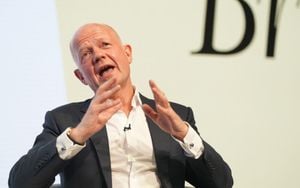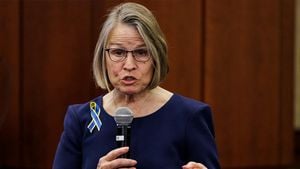Vancouver City Council made waves this week by reaffirming its commitment to environmental sustainability, as it voted against reintroducing natural gas as a heating option for new residential buildings. This decision to maintain the ban on natural gas heating and hot water systems builds upon the ambitious climate goals the city has set for itself.
The city council’s session, which spanned two days, saw intense debate, drawing interest from over 140 speakers who were eager to weigh in on the contentious issue. Advocates for fossil fuel use argued from economic perspectives—suggesting natural gas as the more practical, cost-efficient option—while opponents passionately highlighted its environmental impacts, especially concerning climate change.
Since 2022, Vancouver has prohibited the use of natural gas for heating and hot water in newly constructed homes to curb carbon emissions, which account for roughly 57% of the city’s greenhouse gas footprint, according to local government reports. Brian Montague, one of the councilors, initiated discussions earlier this year to potentially reverse the ban, emphasizing concerns around housing affordability and the urgent need to expedite home construction.
Despite some council members like Mayor Ken Sim supporting Montague’s proposal, the vote fell to a stalemate, resulting in the motion being defeated outright with a 5-5 tie. The rejection means Vancouver will continue to march toward its climate targets without leaning on natural gas, reinforcing its status as a leader in progressive environmental policies.
Throughout the meeting, members of the public frequently stepped up to share their views. Many emphasized the need for continued climate leadership, arguing passionately for keeping the existing ban intact. "What we’ve heard resoundingly is the importance of prioritizing climate leadership, staying the course, and showing courage to do the right thing," asserted ABC councilor Lisa Dominato.
Conversely, proponents of reintroducing gas pointed to practicalities associated with maintaining affordable living conditions. They expressed the belief it could alleviate barriers associated with housing developments, arguing it could support middle-income families and expedite the construction of multiplex housing. Montague stated it was necessary to evaluate how the shift to electric-only systems could impact overall energy demand, which is predicted to soar by 15% before the decade is out.
Despite not granting exceptions for heating, natural gas will remain permitted for certain functions within homes, like cooking and using fireplaces. This aspect of the law aims to balance the existing energy needs and habits of residents with the city's long-term environmental ambitions.
While Vancouver has shown commitment toward decarbonizing residential buildings, the city is currently off course to meet its 2030 goal of reducing carbon pollution by 50%. Critics of the proposed changes highlighted how backtracking on the natural gas ban would complicate the city’s green ambitions, making it harder to hit those commitments.
This council decision follows broader trends across North America where various cities and states are grappling with the balance between economic realities and environmental responsibilities. The pushback from city officials highlights the complex interplay of social, economic, and environmental issues surrounding housing policies, particularly as municipalities seek innovative solutions to pressing crises like climate change.
The discussions surrounding this vote serve as a reminder of the challenges urban centers face as they navigate the path to sustainability amid competing interests. The city council’s decision has drawn attention not only due to its immediate impact on Vancouver residents but also as part of the larger dialogue on urban climate action worldwide.
With the heat on from both supporters and opponents, Vancouver continues on its plan to phase out natural gas, showcasing the realities of governance where ideologies around economics and environmental care often clash. Following this recent vote, the city exemplifies how local governments are trying to take significant steps against climate change, aiming to inspire other municipalities on their journeys toward sustainability.
Looking forward, Vancouver's council will need to remain vigilant and responsive both to its residents' needs and its climate commitments. The conversation is not likely to settle soon, with expectations for continued engagement from community members as urban development evolves. The story of natural gas versus electric power will continue to shape the narrative of Vancouver as it fights to carve out its future, ensuring the warmth of homes does not come at the expense of the planet.



